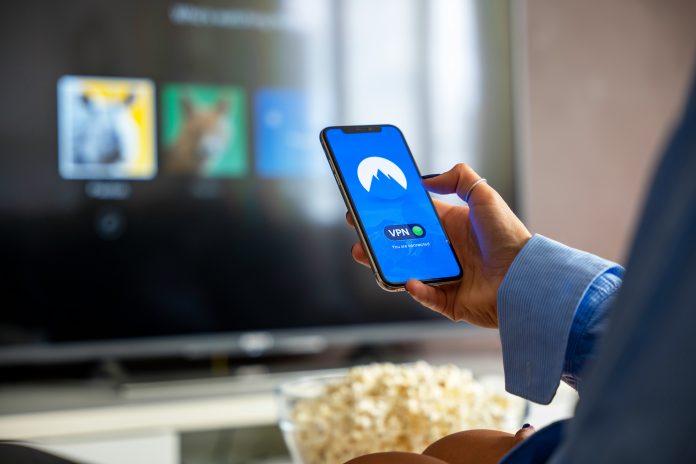Security and privacy are the most important concerns in today’s ever-growing digital landscape. And the VPN application has emerged as a powerful tool designed to encrypt Internet traffic and protect one’s online identity. However, when it is about selecting the best VPN app for your needs, the choice might be daunting. In particular, choosing the right VPN protocol that will safeguard your confidential data is easier said than done because there is a plethora of VPN protocols.
Luckily, you don’t have to make the selection alone. Here is a guide that outlines the most popular VPN protocols so you can understand their nuances and make an informed decision. Without further ado, let’s take a look.

Table of Contents
VPN Protocol – What Does It Mean?
A VPN protocol is a set of rules that govern how data moves between devices and a VPN server. Some form of encryption is used by every VPN to achieve a private and secure connection. However, the procedures and rules for creating this connection are established by a specific protocol and each has its own pros and cons.
Take a look at the breakdown of the key concepts associated with VPN protocols:
- Tunneling – This refers to the process of encapsulating data within another layer so that a secure pathway is created through the Internet.
- Encryption – Encryption is the process of scrambling your data so that nobody can access it except you. The data is in an unreadable format, and even if someone gets their hands on your data, they won’t be able to understand it.
- Authentication – Authentication is the process of verifying the legitimacy of both the VPN server and your device before the transmission of your data.
So, these terms are associated with VPN protocol and understanding what they mean will make it easier for you to make an informed decision.
The Common VPN Protocols
Although there are varied VPN protocols available, and some new ones are joining the list, the following are the most common:
- OpenVPN
OpenVPN is one of the most common VPN protocols and is widely regarded as the gold standard. It offers robust encryption (AES-256) and flexibility. It is open-source and allows for independent security audits. It also supports different authentication methods and encryption algorithms.
However, compared to other protocols, OpenVPN may need slightly more technical configuration.
- IKEv2/IPSec
This is a combined protocol that offers a robust balance of speed and security. The secure communication channel setup is handled by IKEv2 and the data is encrypted by IPSec.
IKEv2/IPSec is adept at reconnecting automatically when there is a drop in the connection, and hence, it is suitable for mobile users.
However, this protocol can be more resource-intensive compared to other protocols.
- WireGuard
WireGuard is a relatively new VPN protocol that is growing rapidly. It prioritizes user-friendliness and speed. It uses cutting-edge cryptography and boasts a streamlined codebase for efficient encryption. Although this protocol is highly secure, it is under development. Therefore, the long-term stability of this protocol is debatable and being evaluated.
- L2TP/IPSec
This is a combination of protocols that offer a secure alternative to PPTP because it combines L2TP (tunneling) with IPSec for robust encryption. Although this protocol is much more secure than PPTP, it can be a bit slower and might even be blocked by some streaming services because of its association with PPTP.
- PPTP
PPTP is an old protocol that offers broad compatibility and user-friendliness. However, this encryption is considered to be less secure and not recommended for confidential activities. It has some vulnerabilities that make it less secure than the others mentioned here.
How Do You Choose The Right Protocol? Key Factors To Consider
- Security – Look for encryption algorithms that offer maximum security. In this area, WireGuard and OpenVPN excel.
- Speed – If you need to whizz through your workflows and finish your tasks faster, you might have to prioritize speed. In this area, IKEv2/IPSec and WireGuard are preferred choices because of their efficient designs.
- Compatibility – You must check whether the protocol is compatible with your particular operating system and device. For instance, OpenVPN is compatible with most devices and operating systems. On the other hand, WireGuard may have some limitations.
- User-friendliness – Is your technical expertise limited? If so, you need to prioritize user-friendly protocols like L2TP/IPSec or IKEv2/IPSec. These often come with built-in support.
- Geo-restrictions and streaming – Some websites and streaming services block VPN connections. So, you have to experiment with different protocols to find out which one can overcome these restrictions. Usually, it has been found that OpenVPN works best when it comes to bypassing geo-restrictions.
Additionally, you have to consider the performance of the VPN protocols. You can conduct speed tests to find the protocol that offers a balance between performance and security.
Summing Up
Understanding the different VPN protocols will help you make informed decisions and ensure your activities and data is secure. You must consider all the different factors outlined above to make a choice. Remember, the best VPN protocol is the one that strikes the right balance between speed, security and user-friendliness.
FAQs
- Which is the best VPN protocol?
It is difficult to say which VPN protocol is the best because each has its own pros and cons. You must choose a protocol that aligns with your specific requirements. The most reliable ones are WireGuard, OpenVPN, and IKEv2.
However, before making your choice, you must find out whether the protocol is compatible with your device and operating system and useful in overcoming other limitations.
- Which is the most secure VPN protocol?
WireGuard has the most advanced tunneling protocols, but IKEV2 and OpenVPN are tried and trusted and the most preferred choices.
- Which protocol is the fastest?
The fastest VPN protocol is WireGuard. It not only provides high speed but is efficient on weaker devices.
- Which protocol is best for iPhone and Android?
IKEv2 is considered the best option for iPhone and Android because it is the most secure mobile tunneling protocol. It seamlessly switches between cellular data and Wi-Fi without leaking data.
